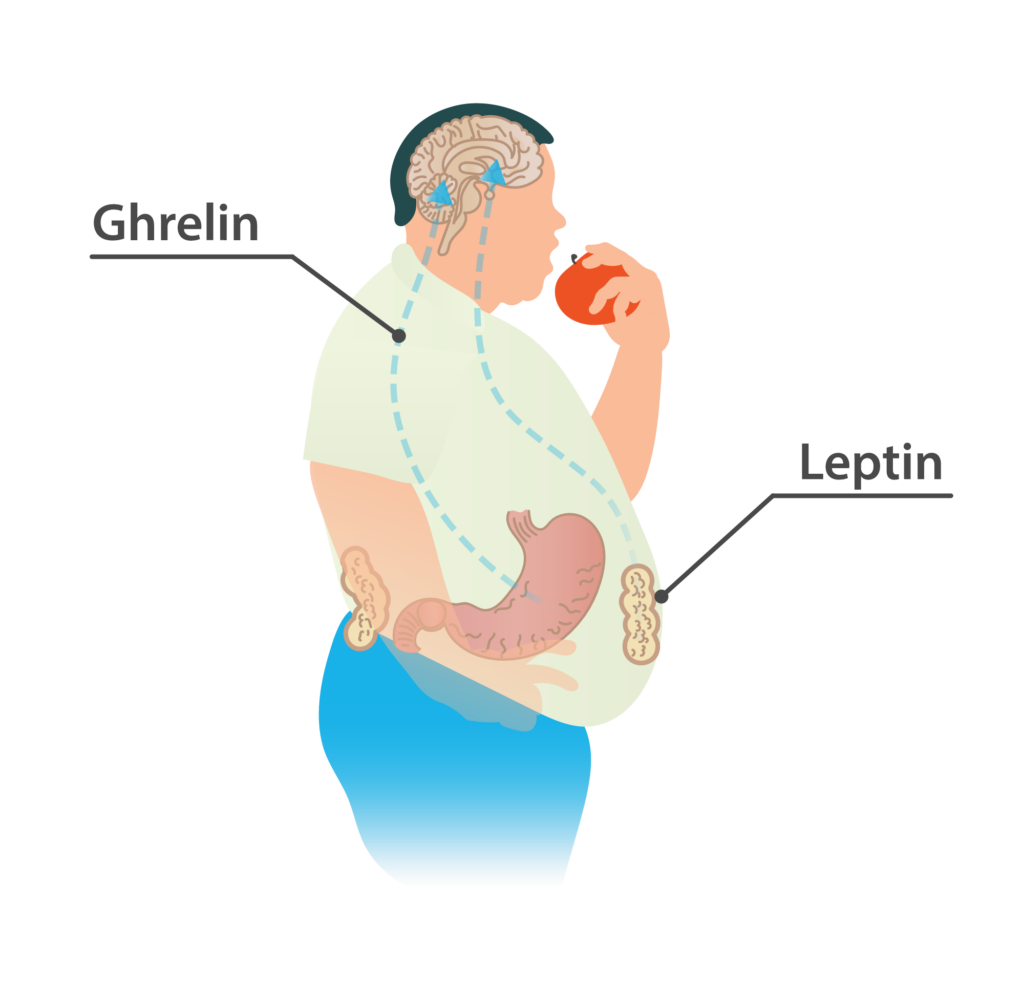Sleep: A Good Supplement for Weight Loss?
When discussing weight management with patients, remember to emphasise the importance of sleep. Studies suggest that getting enough sleep can actually help regulate appetite and reduce calorie intake. This could be a valuable tool for patients struggling to lose weight, especially those who may be experiencing sleep deprivation.
As medical professionals, we know that patient education is key to promoting healthy lifestyle choices. An area where misconceptions often arise is sleeping patterns. Many believe that more sleep leads to weight gain – assuming that when you’re awake for less time, your body uses less energy. However, research challenges this notion, suggesting that adequate sleep is crucial for maintaining a healthy energy balance, while sleep deprivation may contribute to weight gain.
Understanding Energy Balance

Energy balance refers to the relationship between energy intake and energy expenditure. Energy intake refers to the amount of energy consumed through food and beverages. Energy expenditure is the energy used by the body for various functions, including physical activity and metabolism.
When energy intake exceeds expenditure, a positive energy balance occurs, often resulting in weight gain. Conversely, when energy intake is lower than expenditure, it creates a negative energy balance, potentially leading to weight loss.
The sleep extension study demonstrated that increasing sleep duration could shift energy balance in a favourable direction, leading to a negative energy balance and subsequent weight loss.
Study and Key Findings

A randomised clinical trial published in the Journal of the American Medical Association investigated this link. The study involved 80 overweight adults (aged 21 to 40 years, BMI between 25 and 29.9) who were randomly assigned to either a sleep extension group or a control group.
Sleep Extension Group: Received individualised sleep hygiene counselling to help extend their sleep to 8.5 hours per night.
This involved providing tailored recommendations based on their sleep habits, preferences, and lifestyles, including advice on creating a conducive sleep environment, establishing a regular sleep schedule, and practising relaxation techniques.
Control Group: Maintained their regular sleep patterns without any specific sleep recommendations.
The study’s primary outcome was the change in energy intake from baseline.
Key findings:
Significant Reduction in Energy Intake: The sleep extension group reduced their daily energy intake compared to the control group, with an average reduction of 270.4 kcal/d. This reduction occurred without any changes to diet or exercise.

No Impact on Energy Expenditure: The sleep extension intervention did not significantly affect the participants’ total energy expenditure. This means the reduced energy intake directly contributed to a negative energy balance—essential for weight loss.
Weight Loss: Participants in the sleep extension group experienced an average weight loss of 0.87 kg over the two-week intervention period. Although modest, this weight loss is clinically significant, especially considering it was achieved solely through increased sleep duration.
Interpreting the Findings: The Role of Sleep in Energy Regulation
These results highlight the complex relationship between sleep and energy balance. While this study focused on sleep extension’s impact on energy intake, it’s crucial to acknowledge the interplay of various factors that contribute to energy regulation, including hormonal signalling, appetite control, and neural pathways.
Appetite-Regulating Hormones
Previous research indicates that sleep restriction may disrupt the hormone balance involved in appetite regulation – such as leptin and ghrelin.

Leptin, produced by adipocytes, signals satiety to the brain, while ghrelin, produced in the stomach, stimulates appetite.
Sleep deprivation has been linked to decreased leptin and increased ghrelin levels, potentially leading to increased hunger and calorie consumption.
Sleep extension may help restore a more balanced hormonal profile, leading to reduced hunger cues and lower energy intake.
Brain Reward System and Food Cravings
Neuroimaging studies suggest that sleep deprivation can affect brain regions associated with reward processing – potentially increasing the appeal of high-calorie foods.
Sleep extension may modulate these reward pathways, leading to reduced cravings and lower energy intake.
From Research to Practice
This study has important implications for clinical practice. As physicians, we are at the forefront of addressing the obesity epidemic and its associated comorbidities. Integrating sleep health, supported by health management information, is essential for providing effective and tailored treatment strategies. To learn more about sleep interventions, take a look at the IHP Mastery Program.
Consider the following in Practice:
Incorporate Sleep History into Routine Assessments: Routinely inquiring about patients’ sleep habits, including sleep duration, quality, and disturbances, provides valuable insights into their overall health status.
Educate Patients about Sleep for Weight Management: Many individuals remain unaware of the link between sleep and weight. Communicating the importance of sleep can empower patients to prioritise it as part of their functional health goals.
Offer Practical Sleep Hygiene Advice: Provide practical, patient-centred advice on improving sleep hygiene, such as establishing a consistent sleep-wake cycle, creating a conducive sleep environment, and practising good sleep hygiene.

The Role of Sleep in Weight Loss Resistance: For patients struggling to lose weight despite lifestyle modifications, insufficient sleep could be a contributing factor.
Public Health Implications
Addressing the obesity epidemic requires a multifaceted approach, including individual behaviour change, supportive environments, and public health interventions.
Public health messages should incorporate information about healthy sleep habits, such as maintaining a regular sleep schedule and creating a relaxing bedtime routine.
Integrating these messages into existing campaigns promoting healthy diets and regular physical activity could enhance their overall effectiveness.
Moving Towards a Sleep-Aware Approach to Health
This study provides compelling evidence that even short-term sleep extension can positively influence energy balance and promote weight loss in overweight adults with a history of insufficient sleep. These findings challenge the misconception that more sleep leads to weight gain.
As medical professionals, integrating sleep assessment and counselling into routine practice can significantly impact patients’ health outcomes. By advocating for sleep as a public health priority, we can contribute to a broader societal shift that prioritises sleep health, ultimately fostering a healthier population.
How do I Become a Functional Medicine Practitioner to learn more about Sleep and Weight Loss?

The Institute of Integrative Medicine is a global leader in the field of Integrative Medicine Education. Integrative medicine aims to be at the forefront of modern technology and new discoveries and focuses on the root cause of disease. The connection between sleep deprivation and weight gain is linked to hormones like leptin and ghrelin, which regulate appetite. By emphasising the importance of sleep alongside diet and exercise, you can provide patients with a more holistic approach to achieving their weight goals. The IHP program addresses this need by equipping healthcare professionals with the knowledge to confidently utilise these interventions. We offer certified online courses helping you to take charge of your practice and improve the quality of life for your patients. Find out more about the courses we offer today!

